- Register
- Log in to Tune-In
- Wishlist (0)
-
Shopping cart
(0)
You have no items in your shopping cart.
Beatles News

Beatles live albums didn't really used to be a thing. They came off the road in August 1966 and the group's first official concert recording, The Beatles at the Hollywood Bowl, wasn't released until 11 years later.
Three Beatles had issued live LPs in the meantime: John Lennon with 1969's Live Peace in Toronto, George Harrison with 1971's The Concert for Bangladesh and Paul McCartney with 1976's Wings Over America. The knockoff Live! at the Star-Club in Hamburg, Germany 1962 had only arrived a few months before the Hollywood Bowl recordings.
Not much. Then the next decade would see exactly one Beatles live album released – Lennon's posthumous Live in New York City from 1986. But then something incredible happened: Nine concert recordings were released in the '90s, including Ringo Starr and His All-Starr Band, McCartney's Tripping the Live Fantastic and the Beatles' Live at the BBC.
That's almost twice as many as arrived in the '60s, '70s and '80s combined. Seven more Beatles live LPs were issued in the 2000s, then five more in the years that have followed. Suddenly, there's now a robust sampling group for the following ranking of Beatles live albums.
As the last surviving Beatles, McCartney details
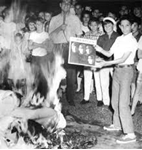
The full, true story behind the most controversial moment in The Beatles history. The Beatles rarely put a foot wrong in their relatively short, stunning decade together.
They shrugged off the departure of Pete Best, quickly switched up their shocking "butcher cover", and kept most of their feuding under wraps until it all eventually fell apart.
But there was one explosive moment that truly changed absolutely everything for the Fab Four.
“What’d you do? Screw up like The Beatles and say you were bigger than Jesus?" Bart Simpson asked Homer about his dad's barbershop quartet The B-Sharps, proving how the controversy has become so embedded in our culture.
The incident has remained shorthand for The Beatles messing up and maybe the beginning of the end of Beatlemania, in the US at least. But what's the truth about what really happened? Read on to find out. Did The Beatles really say they were "bigger than Jesus"?
The first myth around The Beatles' Jesus controversy is that the quote attributed to the band was totally mangled. Here's the exact phrasing of what John Lennon said, and the context.
Christianity will go. It will vanish and shrink. I needn't argue about th details
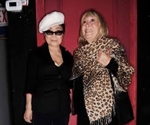
Yoko Ono said she had a great deal of respect for Cynthia Lennon. She shared why she thought Cynthia was a strong person.
Yoko Ono and John Lennon began a relationship while he was still married to his first wife, Cynthia Lennon. The affair, of course, did nothing good for the relationship between the two women. When Ono first met Cynthia, though, she said she liked her a great deal. She recognized an innate strength in her that had to be present in order to put up with Lennon.
Cynthia met Ono before she realized she was having an affair with her husband. Ono said Cynthia’s poise impressed her.
“The first time I met her at Kenwood — I thought she was very quiet and sensitive — a nice lady,” Ono said in the book All You Need Is Love: The Beatles in Their Own Words by Peter Brown and Steven Gaines. “She had a nice figure and my feeling was in Liverpool, when he went to art school, I think she was like a different class of chick, you know, rather elegant and graceful, and I think that’s probably what impressed John.”
Ono believed Cynthia’s intelligence had helped her win Lennon over. She also believed that Cynthia’s strength hel details

It’s hard to imagine, with just seven studio albums and a few assorted singles released during his lifetime, that any of John Lennon’s solo work could go essentially forgotten, but the ridiculously underappreciated Mind Games is just that.
Released in the wake of Lennon and wife Yoko Ono’s agitprop Sometime In New York City, which led many fans to wonder what was going on with Lennon—and the always paranoid Nixon Administration to brand Lennon a political enemy and have him followed by the FBI and his phones tapped—Mind Games did respectable sales numbers upon release in 1973, but hardly those befitting a former-Beatle.
“When Mind Games came out, as a fan back then, my initial reaction was of being a little bit disappointed,” recalls Rob Stevens, who has acted as Yoko Ono’s archivist for decades and who worked on the new box set, Mind Games (The Ultimate Collection), out now. “But upon the years passing, what I found was that, in retrospect, it wasn’t the John Lennon I wanted to hear. Because it’s confessional, it’s emotional, it’s asking for forgiveness, it’s giving forgiveness.”
Predating Bob Dylan’s Blood O details

Paul McCartney and John Lennon worked together closely for years. When The Beatles broke up, though, their friendship deteriorated. Lennon and McCartney fought often over business affairs and they could hardly have a conversation without shouting at each other. Lennon began to screen McCartney’s calls, which the latter found very hurtful.
John Lennon would screen Paul McCartney’s calls.
Throughout the 1970s, McCartney reached out to Lennon in an effort to rebuild their relationship. This was made difficult by the fact that Lennon rarely believed it was actually his bandmate on the other end of the phone. He made McCartney answer security screening questions before he agreed to talk to him.
Source: imdb.com
details
On 10 July 1964, there was the chord. And while the chord may not have been a new cosmological big bang, it was the sonic equivalent in the pop cultural sense. I’m talking about the ringing, thundering, unlike-any-sound-there-had-ever-been chord that occurs at the start of the Beatles’ A Hard Day’s Night, commencing the album of the same name, which was launched 60 years ago this week. With a single stroke, the Beatles changed the course of western music, and the LP – which was to continue the theme – had barely even begun.
I fell hard for the Beatles in eighth grade, and have written about and pondered them ever since. In church on Sundays I’d spend the hour attempting to rate their albums in my head. Fierce battles were waged. Was Abbey Road making a push for the No 2 spot? Was I prepared to say that Rubber Soul was better than Revolver?
I’ve long known that A Hard Day’s Night was as good an album as the Beatles produced, though I wouldn’t always outwardly admit it, as if holding back on what I understood – which was that it was both perfect and steeped in joy. A euphonic cradle of joy.
We have this tendency to conflate the idea of joy with ha details
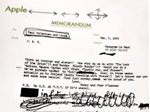
In 1972 after The Beatles had broken up John Lennon asked Paul McCartney if he would do a benefit show with Wings, The Stones and Plastic Ono Band.
The new box set edition of Lennon’s ‘Mind Games’ includes the correspondence from John Lennon to Paul McCartney requesting a benefit gig at Madison Square Garden.
“Right on brother and sister! Now what do we do with “The Luck of the Irish” and ‘Sunday Bloody Sunday”? Would you do a Madison Square Garden with Wings, Plastic Ono and Stones? We’ve already talked to Mick. Also in three weeks actually go to Ireland (again possibly with Stones). Lets forget our past and save some people. Good luck anyway, we’re proud of you”.
It was signed ‘Sonny and Cher O’Lennon’.
The event never happened but imagine if it did. John’s current album at the time was ‘Imagine’ with ‘Sometime In New York City’ coming four months later. He also had 1970’s ‘John Lennon/Plastic Ono Band’ album to source from.
McCartney had three solo albums at the time. ‘McCartney’ (1970), ‘Ram’(1971) and Wild Life’ (1971). &lsq details
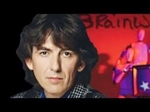
George Harrison was rarely a provocateur, however, he called his final album Brainwashed. Accusing anyone of being brainwashed is pretty bold! One of George’s British Invasion peers explained the origin of that memorable title. Notably, it had a connection to George’s spiritual views.
Two kindred spirits in the 1960s counterculture were George Harrison and Donovan. Both artists were folk-rockers who explored spirituality through their songs. George’s songs were often expressions of his Hindu faith, whereas Donovan sang about common New Age topics like Atlantis and witchcraft. Both of them were also environmentalists.
During a 2018 interview with Goldmine, the “Mellow Yellow” singer discussed his feelings about the planet and George’s — and what they both learned from the books they read. “That the older generation was destroying the eco-system with no consideration whatsoever for the inner world of plants, for the inner world of children, and they were trying to brainwash the younger generation to follow in their insidious desire for all things materialistic, incl details

Stewart Copeland said the Beatles’ movie Get Back led the Police to re-evaluate their past – and that’s why their 1983 album Synchronicity will return in a 6-disc box set on July 26.
The drummer, along with former colleagues Sting and Andy Summers, have often discussed the interpersonal issues that made some aspects of the band difficult to endure, even though they loved the music that came out of it.
In a new interview with the Guardian, Copeland was asked why Synchronicity was returning at this particular time. “The Police had an epiphany courtesy of the Beatles’ documentary, Get Back,” he replied.
“Each of us learned, in our separate ivory towers, that the final master isn’t in any way diminished by showing the sketches or demos along the way. [Previous album] Ghost in the Machine had taken us into stadiums and then Synchronicity made us even bigger, but the recording sessions were very dark. We beat the crap out of each other. We’ve laughed about it since, but going back into that black hole isn’t something we tended towards.”
He added that it had been “such fun listening to the demos and songs that didn’t make it&r details

"Shake It Up, Baby: The Rise of Beatlemania and the Mayhem of 1963" by Ken McNab
Always know what your neighbor knows with our newsletters, delivering the latest local news, sports, and breaking stories straight to your
It was like squashing a cockroach, they said. Put your toe down in one spot, rotate your hips and your ankle, shimmy them shoulders, and snap your fingers to the beat. That’s how you kill a bug, and it’s how you do The Twist — but beware. In the new book "Shake It Up, Baby" by Ken McNab, there are some Beatles you really want around.
The first day of 1963 was remarkable for one thing: Great Britain was in the midst of "an extraordinary polar plunge that would last three long, depressing months." Also on that day, John Lennon, Paul McCartney, George Harrison, and Ringo Starr arrived on a plane home from Hamburg, "just four nameless faces in the crowd."
They had no idea that this would be the year "when everything changed."
They were still getting used to one another, jostling for control. Their manager, Brian Epstein, was toiling to make the four men famous, constantly calling record companies, landing gigs, booking recording studios — one at which details

When you’re as prolific of a band as the Beatles, there will inevitably be a few songs you dislike—like the “throwaway” track from ‘Rubber Soul’ that John Lennon said he “always hated.” Ironically, Lennon was the one who wrote the song in the first place, although he would later say the tune stayed in the band’s rotation because George Harrison liked it.
Paul McCartney also held the song in somewhat low regard, calling it a “macho song” in Barry Miles’ Many Years From Now. All things considered, perhaps that’s why this track found itself on the last slot of the band’s 1965 record that featured other hits like “Drive My Car” and “In My Life.” John Lennon Always Hated This Closing Beatles Track.
The 14th and final song on the Beatles’ ‘Rubber Soul’ album was an original by John Lennon: “Run for Your Life.” Lennon lifted the main gist of his song from a 1955 Elvis Presley cut called “Baby, Let’s Play House.” Presley sings in the song, Now, listen to me baby. Try to understand: I’d rather see you dead, little girl, than to be with another man.
In a details

The Beatles returned to Liverpool last night to attend the northern premiere of their film A Hard Day’s Night and, presumably, to put an end to the rumours that their popularity on Merseyside was on the wane.
In case any readers have just come from Mars, the Beatles are the four long-haired musicians who sing rock’n’roll music and have become as permanent a part of the Liverpool scene as the sight of ferry boats on the Mersey. But, unlike the Mersey ferries the Beatles have been playing in foreign waters: America, Australia, France, and what is even more obnoxiously foreign to Liverpudlians, London.
Thus the care and caution of Mr Brian Epstein, the Beatles’ manager, in organising this triumphant return. If Mr Epstein did spend any sleepless nights worrying about the Beatles’ honour in their own country he was wasting his time. Long before their aircraft from London arrived at Speke airport all the signs of a successful re-entrance to Liverpool were there. The rooftop at the airport was crowded with screaming teenagers, a prerequisite to Beatles’ entrances and exits, and there were so many policemen on duty that it looked as if they were there to protect each other.
Hy details

Ringo Starr has gone country after all these years.
At Ringo's Annual Peace & Love Birthday Celebration at Beverly Hills Garden Park, the Beatles legend revealed what inspired the genre shift. Starr credits T Bone Burnett, the Grammy-winning country icon, telling Fox News Digital, "I met him [when] Olivia Harrison was reading poems for George. There was about 100 of us there listening, and he was one of them, and I bumped into him [off and on] since the '70s.
"He said, ‘What are you doing? I said, ‘Oh, well I’m doing this, EPs [extended play albums, which have more tracks than a single, but less than a record]. I’m getting people to write a song, put some music on it."
Ringo Starr decided to produce a country album after a chance meeting with a fellow music icon.
Starr had some pop songs written but said Burnett's song was "absolutely one of the most beautiful country songs I ever heard. So, I thought, ‘I’m going to do a country EP.’"
But when he spoke to Burnett about doing more tracks, he revealed he actually had nine songs, so Ringo said, "I thought let’s make a real CD, so I’m back making a CD." In an interview earlier details

No matter what the Beatles created, the world never seemed ready for what that was. You only knew that it would be different than anything before. Had you loved the band’s last album, you were also aware that the one about to hit record store shelves would be a departure, a moving-on from what already existed. The Beatles both challenged and rewarded listeners this way, which is among the best things about them.
That surprise factor existed from the start with a single like “Please Please Me,” and, of course, “She Loves You,” a song that feels as if you’re hearing it for the first time after you’ve heard it a thousand times. The albums startled as well: Please Please Me had the gumption to function as a cohesive statement and not merely a couple of hits fleshed out with filler, while sophomore outing With the Beatles was a rhythm and blues masterwork from the industrial cities of America via the ports—and the musical melting pot—of the Beatles’ Liverpool.
If you were around back then, you may have believed that the Beatles were about to settle in, and what they did going forward, for however long they managed to last, would be variations on that marvelo details
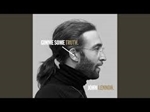
A week into their marriage in Gibraltar, Spain, John Lennon and Yoko Ono invited the press into their honeymoon suite at the Hilton Hotel in Amsterdam in March 1969. To drive home their opposition to the Vietnam War, Lennon and Ono vowed to stay in bed for an entire week. Their bed-in-for-peace drew attention and was replicated by the couple several months later in Montreal, Quebec, Canada.
Meaning Behind “You’re in My Heart' by Rod Stewart and the Famous Girl Who Inspired It
On May 26, 1969, Lennon and Ono followed up first bed-in-for-peace with another in room 1742—and adjoining rooms 1738, 1740, and 1744—at the Fairmont Queen Elizabeth Hotel in Montreal. The gathering was also used as a live recording of Lennon’s debut solo single and protest song, “Give Peace a Chance.”
“Our talk is peace talk and our message is peace and we’re promoting a product called peace,” Lennon told the Montreal Gazette. “And we’ve been on a campaign for a few months and our product seems to be getting underway and we’re talking to anybody who’s interested in peace, which is most people.”
Source: Tina Benitez-Eves/americans details
